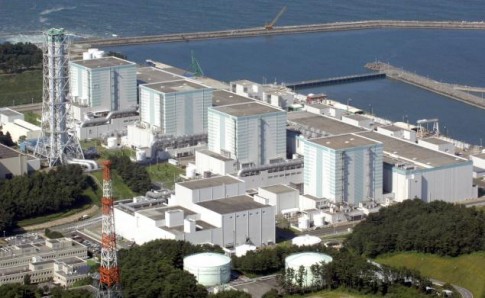Japan failed to implement a number of safety principles and recommendations of the International Atomic Energy Agency in the years leading up to the Fukushima nuclear disaster, according to an IAEA report drawn up by international experts.
The full report that was obtained by the German Press Agency dpa on Friday exposed further how Japanese authorities fell short in preparing for nuclear accidents, following a previously published summary version, DPA reported.
For example, the experts described how Japan had not adequately applied the IAEA's fundamental principle of building several layers of defences against outside threats.
Although measures to protect against tsunami were stepped up after 2002, they were insufficient, the report said.
"Moreover, those additional protective measures were not reviewed and approved by the regulatory authority," the experts said in the report, which was based on their visit in late May to Fukushima, where several of the damaged reactors still have not been brought under control.
The IAEA's safety guidelines are not binding for member states but serve as international benchmarks.
A minister-level conference at IAEA headquarters next week in Vienna is set to look at lessons from the Fukushima disaster, which has resulted in massive radiation emissions, but diplomats have said that only a handful of countries would support binding or enforceable IAEA guidelines.
Japan had not properly updated its threat estimates for natural hazards in line with new scientific findings, the report said, asking the country to heed IAEA safety standards, which are regularly revised.
In addition, the experts appeared puzzled about the effectiveness of Japan's elaborate tsunami warning system: "This system was not used at (the Fukushima 1) plant, and the operators were not aware of the approaching tsunami waves."
The report made clear that the Nuclear and Industrial Safety Agency still lacks independence from the government and that its duties overlap with other institutions, even though the IAEA already pointed out these jurisdictional problems in 2007.
Japan handled the nuclear disaster well, given the circumstances, the report said.
"Nevertheless the system of nuclear emergency preparedness appears to be complicated in its structure and organization," it said.
The recovery operation at Fukushima was hampered by a lack of staff, numbering only some 400 people. "The number of the operation people was totally insufficient for the recovery operation of six (reactor) units," the experts said.
The IAEA-appointed independent experts faulted authorities for instructing people in the vicinity of the Fukushima power plant to stay indoors, which they said was "not an effective approach" and not in keeping with international practice.
Japan's government has already acknowledged many shortcomings, including failure to plan for the devastating effects of a massive quake followed by a 14-metre-high flood wave.
In an extensive report to IAEA member states ahead of next week's Vienna conference, Tokyo admitted that it had not communicated enough with other countries after the accident.
Japan did not heed global nuclear standards, IAEA finds
Japan failed to implement a number of safety principles and recommendations of the International Atomic Energy Agency in the years leading up to the Fukushima nuclear disaster, according to an IAEA report drawn up by international experts.






